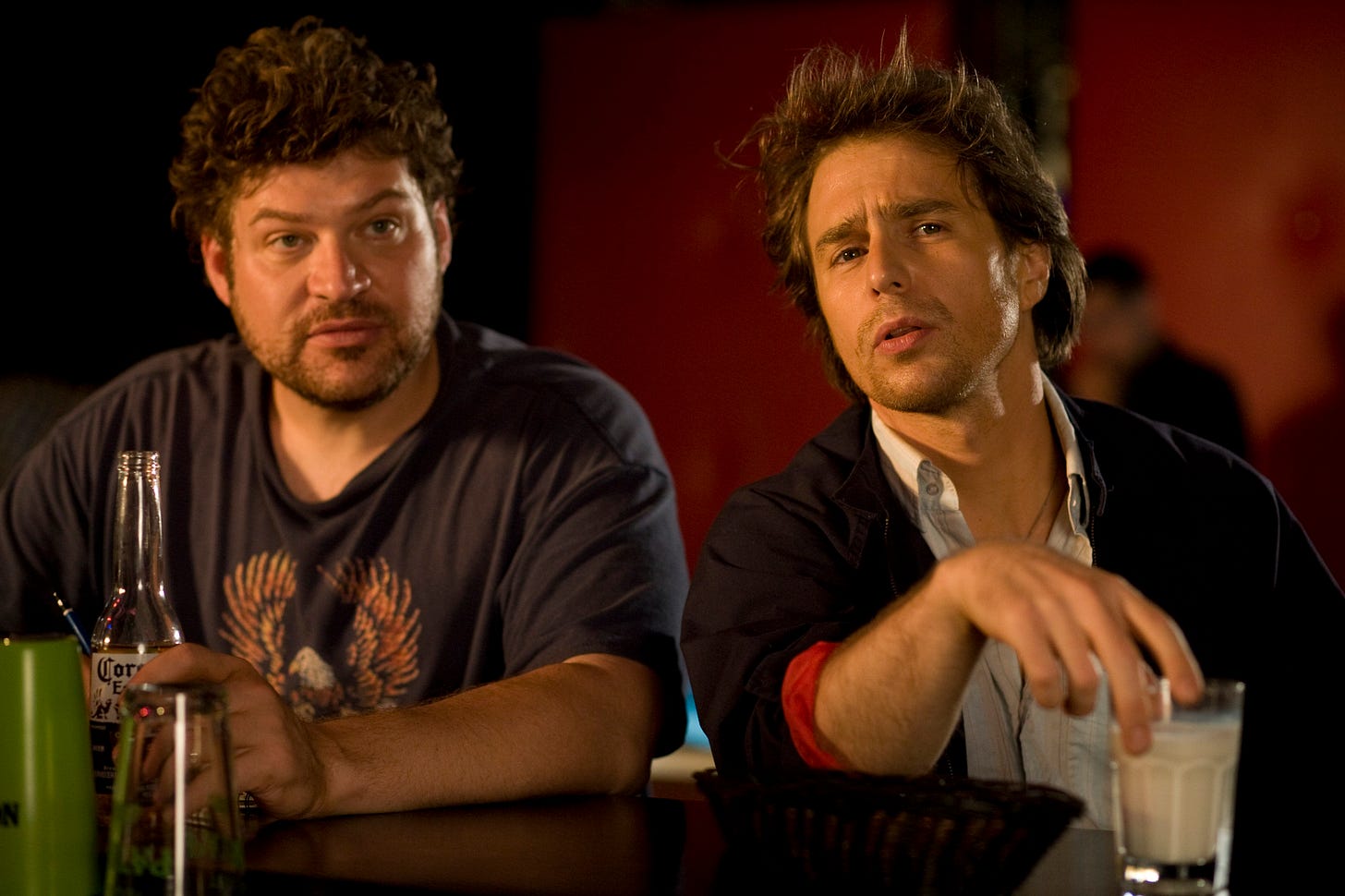It’s pretty much an incontrovertible truth that, in the case of book-to-film adaptations, the book is always better than the film. That doesn’t make it any less disappointing when a great book is butchered on the big screen.
Choke by Chuck Palahniuk is a darkly comedic novel that explores themes of addiction, identity, and the human need for connection. The story follows Victor Mancini, a sex addict who works as a historical reenactor at a colonial-era theme park. To support his ailing mother’s medical bills, Victor runs a scam: he pretends to choke in restaurants, allowing strangers to "save" him and then feel responsible for his wellbeing—often sending him money out of guilt or pride.
Victor’s life is chaotic, driven by compulsions he can’t control and a mother who is mentally ill and institutionalized. She refuses to tell him who his real father is, spinning lies and confusing stories that leave Victor unsure of his own origins. As he navigates group therapy, casual sexual encounters, and his crumbling sense of self, Victor becomes entangled with a hospital worker who suggests he may be the clone of Jesus Christ, deepening his existential crisis.
Through sharp satire and grotesque humor, Choke examines how people cope with emptiness and trauma. Palahniuk paints a bleak, yet strangely empathetic picture of flawed humanity, ultimately questioning whether redemption is possible in a world full of deception, dysfunction, and absurdity.
The film, on the other hand, is a sanitized mid-2000s comedy that only touches briefly on the novel’s themes and leaves out much of the visceral detail that makes Palahniuk’s work so striking. Sure, it still features a great deal of sex and general perversion, but very little of it is repulsive in the way the novel captures.
After the success of a Palanhiuk adaptation Fight Club in 1999, studios did what they always do: Buy up transgressive, landscape-changing properties and produce them without keeping the traits that made them transgressive and landscape-changing. Choke is a perfect example of this.
With a director like David Fincher, Fight Club, even with departures from the source material, captures the tone of the novel perfectly. The film is gross and grimy and it stays with you for days and weeks after viewing.
In the case of 2008’s Choke, Clark Gregg writes and directs, which, frankly, says all you need to know about the film. That’s the same Gregg who plays a recurring side character in the Marvel films and is also known for featuring in films like Mr. Popper’s Penguins, Hoot, and most recently that atrocious Amazon commercial disguised as a film that was the 2025 War of the Worlds. The result is a visually and emotionally bland retelling of a book that is anything but.
The saving grace of the film is Sam Rockwell, but what more can be said about Sam Rockwell? For two decades running he’s been the best part of just about any film or show he’s been a part of.
With a great script and a stronger filmmaking team, this could have been a signature film for Rockwell. Instead, it’s a mostly forgettable part of his filmography.
And when I say forgettable, I mean that. I finished the film about 20 minutes ago, and I’ve already found it fading from memory.



Love Sam Rockwell!!!